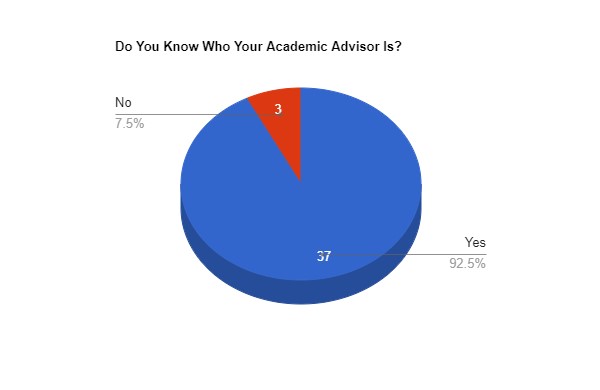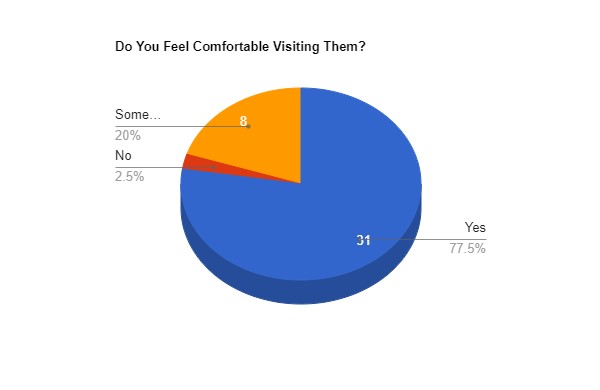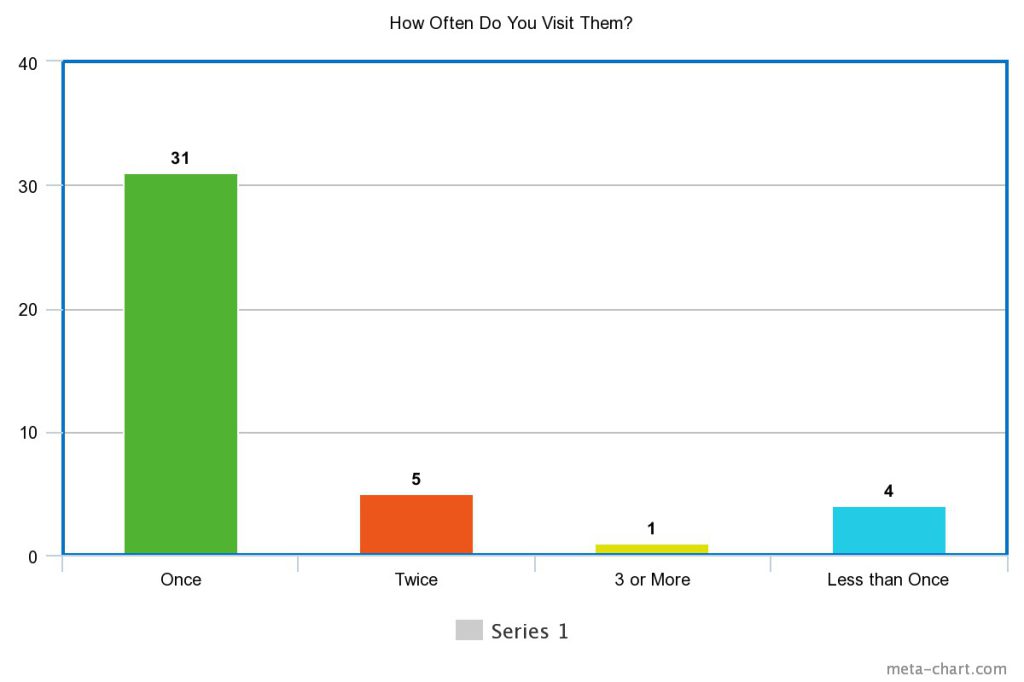By Naomi Annamanthadoo and Christhaina Fonrose
Making the transition from high school to college can be a very confusing time. In high school students are giving all their classes without the help of an advisor. Now that they are entering college, most tend to feel confused, and some may not know how to use the resources within their reach. My partner and I created a survey designed to help us know how well students on the QCC (Queensborough Community College) campus knew their academic advisor.
Our first question was simply, “Do you know your academic advisor?†Out of the forty (40) people surveyed thirty-seven (37) said yes and three (3) people said no. Students stated they were more likely to visit their advisor once a month.

When asked if they felt comfortable visiting them thirty-one (31) people responded yes, twenty-three (23) people also stated that they strongly agreed and felt that their advisor was approachable and friendly.

When asked if they felt their advisor was able to resolve their issues, there was a big split between that question, twenty-two (22) people answered yes while eighteen (18) people answered somewhat.
The question that followed #5 was designed to target their key issues. Did their academic advisor respond on time? Twenty-four (24) people answered yes, two (2) answered no, and fourteen (14) answered sometimes.
We would also like to state that out of the forty (40) people that we surveyed a small amount stated that after visiting their advisor for the first time, it was also their last time, a few also responded that they are only ever likely to schedule an appointment to visit their advisor once a semester.

In an article titled “The Importance of Academic Advising in Higher Education†Kaitlin Tach who is an intern at the US department of Education conducted a survey herself and was able to collect data. Upon our reading of the article, Tach states that “As a UC Berkeley undergraduate student, I have come to realize that degree advisors exist at the institution solely for the purpose of helping the students, though you must seek them out yourself. The student must seek appropriate resources and ask the questions they need answered. However, seeking out an academic advisor at competitive institutions can feel like a sign of failure or lack of independence for many students when this is not the case.†What my partner and I were able to understand upon reading this article, is that knowing your advisor is up to the student, it is their responsibility to take advance of all the resources and help that is in their vicinity. Advisors are there to be a guide to students, whether it is to just be knowledgeable in monitoring the students’ progress or even advising them on the opportunities that they seek after getting their degree.â€
In another article that my partner and I came across titled “What do Students Want in Advising? A Policy Capturing Study†written by Karen E. Mattarella, Barbara A. Fritzsche, and Kara C. Carrabino of the University of Florida we found that the research talks about an experiment conducted by a group of professionals that wanted to see what the impact of advisors had on students. In the research there were several methods that these researchers used to collect and analyze the results. While studying a situation that was also remarkably like advising, the researchers were able to find that some students’ evaluations of satisfaction with their instructors tend to be more influenced by their instructor’s gender. For example, “Baslow (1987) found that female instructors were not as highly rated as the male instructors were. Is the case with unconscious bias? The situation students may not be aware of is having a gender bias that relates to their satisfaction. with advising.†In the many researchers conducted, they were able to figure out that for many students age, gender, and ethnicity played a key role in their survey, they were specifically investigating student preferences across five advising dimensions.
To our surprise, our survey was able to confirm that many students do know and have met their academic advisor, although we thought that many of them were not aware of the resources around them. The survey proved that a majored percentage of QCC students are prepared and are on the track, because the final question of the survey was designed to ask students about transferring to another college. The students were asked whether they felt as if they could rely on their advisor for a reference letter. Fourteen (14) students strongly agreed that they felt as though they would be able to ask their advisors for reference letters. Another fourteen (14) stated that they also agreed with the previous statement, while ten (10) were neutral and two (2) students disagreed completely with the question.




